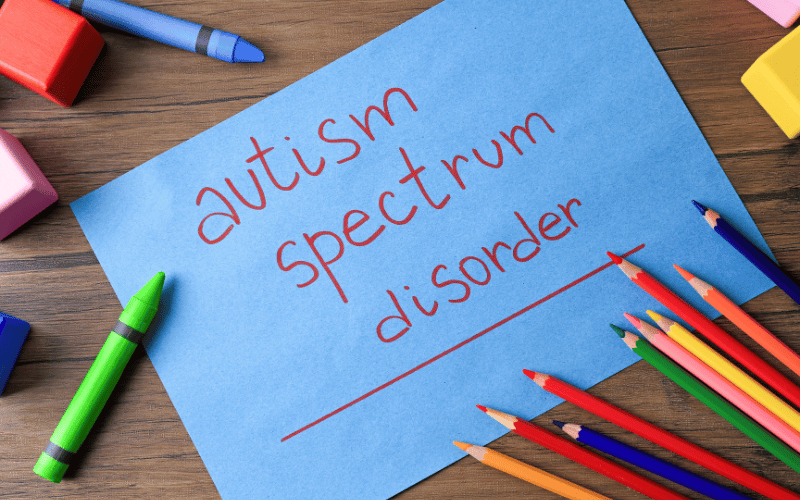Autism Spectrum Disorder (ASD) can be a challenging journey to navigate, but you’re not alone! In this comprehensive guide, we’ll explore the early signs of ASD, how to secure a proper diagnosis, and most importantly, the strategies for success that can empower individuals on the spectrum. Remember, with the right support and understanding, there’s no limit to what people with Autism Spectrum Disorder: Early Signs, Diagnosis, and Strategies for Success can achieve!

Recognizing the Early Signs of Autism Spectrum Disorder
Before diving into the world of ASD diagnosis and strategies for success, it’s crucial to know the early signs. Here are some red flags to watch for:
Social Interaction Difficulties
- Little to no eye contact
- Struggling to develop or maintain friendships
- Difficulty understanding social cues, body language, or facial expressions
Communication Challenges
- Delayed speech development or no speech at all
- Repetitive speech patterns, such as echolalia (repeating phrases or words)
- Struggling to initiate or maintain a conversation
Behavioral Patterns
- Repetitive behaviors or movements (e.g., hand flapping, spinning, or rocking)
- Intense focus on specific interests or objects
- Strict adherence to routines and resistance to change
Remember, every person with Autism Spectrum Disorder: Early Signs, Diagnosis, and Strategies for Success is unique, and these signs may vary in intensity and manifestation.
Obtaining a Diagnosis: The First Step towards Success
If you suspect your child or someone you know may have ASD, seeking a proper diagnosis is crucial. Here’s a quick overview of the diagnostic process:
Consultation with a Specialist
Your journey begins with a visit to a specialist, such as a pediatrician, psychologist, or psychiatrist. They will assess the individual’s developmental history, behavior, and social interactions.
Evaluation and Assessment
After the initial consultation, the specialist may refer you to a team of professionals for further evaluation. This may include:
- Speech and language assessments
- Occupational therapy evaluations
- Psychological assessments
Diagnosis Confirmation
Once all evaluations are complete, the team will provide a diagnosis. It’s essential to know that an Autism Spectrum Disorder: Early Signs, Diagnosis, and Strategies for Success diagnosis is not a label but rather a guide to understanding the individual’s unique needs.
Strategies for Success: Empowering Individuals with ASD
With a proper diagnosis in hand, it’s time to explore strategies for success. Here are some essential tools to empower individuals with ASD:
Early Intervention Programs
The earlier the intervention, the better the outcome. Early intervention programs focus on:
- Social skills development
- Communication skills enhancement
- Behavioral management
Educational Support
An Individualized Education Program (IEP) can be an invaluable tool for children with ASD. This tailored plan ensures the child receives the necessary support and accommodations in school.
Therapeutic Approaches
Various therapeutic approaches can be effective for individuals with Autism Spectrum Disorder: Early Signs, Diagnosis, and Strategies for Success:
- Applied Behavior Analysis (ABA)
- Occupational Therapy (OT)
- Speech and Language Therapy
Encourage Social Interaction
Helping individuals with ASD develop social skills can be immensely beneficial. Consider enrolling them in social skills groups or clubs with shared interests to foster meaningful connections.
Foster Independence
Teaching essential life skills and promoting independence can significantly improve the quality of life for individuals with ASD.
FAQs
What causes Autism Spectrum Disorder?
The exact cause of Autism Spectrum Disorder is not yet fully understood. However, researchers believe that a combination of genetic and environmental factors may contribute to its development.
Can adults be diagnosed with Autism Spectrum Disorder?
Yes, adults can be diagnosed with ASD. While it’s more common for a diagnosis to occur during childhood, many adults may not have been properly diagnosed earlier in life and can still benefit from support and interventions.
Is there a cure for Autism Spectrum Disorder?
There is no known cure for ASD. However, with appropriate intervention and support, individuals with ASD can lead fulfilling and successful lives.
Do vaccines cause Autism Spectrum Disorder?
Extensive research has shown that there is no link between vaccines and Autism Spectrum Disorder. Vaccines are essential for maintaining public health and preventing life-threatening diseases.
Conclusion
Navigating Autism Spectrum Disorder: Early Signs, Diagnosis, and Strategies for Success may feel overwhelming, but with the right knowledge and support, individuals with ASD can thrive. Remember, early recognition and intervention are key to maximizing potential, and various therapeutic approaches and educational support systems can help unlock success. Embrace the unique qualities of individuals with ASD and empower them to reach their full potential!